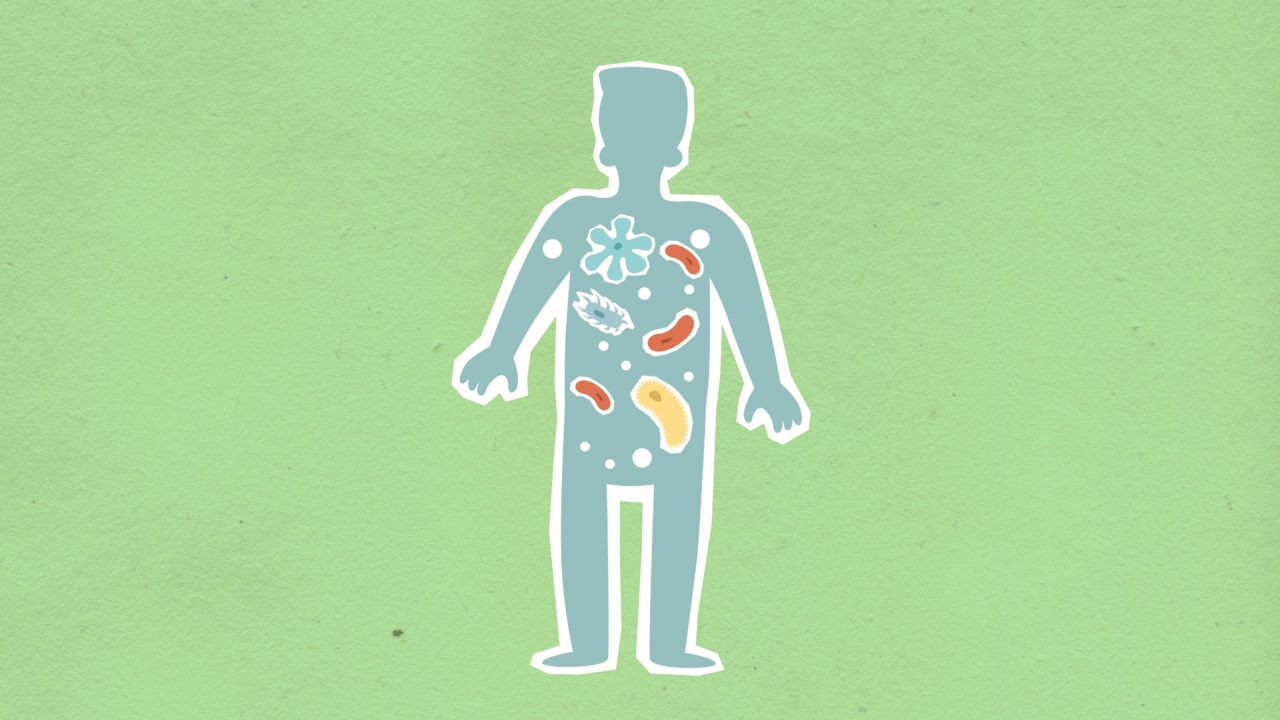Our body is home to trillions of bacteria, both beneficial and harmful. While harmful bacteria can cause infections and diseases, beneficial bacteria play a crucial role in maintaining our overall health.
These tiny organisms, primarily found in our gut, help in digestion, boost our immune system, and even affect our mood. Nurturing our body’s beneficial bacteria has numerous benefits that contribute to a healthier and happier life.
Improved Digestive Health
One of the key benefits of nurturing your body’s beneficial bacteria is improved digestive health. These bacteria aid in the breakdown of food, allowing for better nutrient absorption.
They help produce enzymes that break down complex carbohydrates and fiber, which are otherwise difficult for our body to digest. The presence of beneficial bacteria in the gut also prevents the overgrowth of harmful bacteria, reducing the risk of digestive disorders, such as diarrhea, bloating, and constipation.
Enhanced Immune System
Nurturing your body’s beneficial bacteria can greatly enhance your immune system. Around 70% of our immune system resides in the gut, making it essential to maintain a healthy balance of bacteria.
Beneficial bacteria help regulate the immune response, preventing the immune system from overreacting to harmless substances and reducing the risk of autoimmune disorders. They also stimulate the production of immune cells and antibodies, which help fight off infections and keep us healthy.
Reduced Inflammation
Inflammation is a natural response by our body to protect itself from harmful stimuli. However, chronic inflammation can lead to various health problems, including cardiovascular diseases, diabetes, and arthritis.
Nurturing your body’s beneficial bacteria can help reduce inflammation levels. These bacteria promote a healthy gut lining and prevent the leakage of harmful substances into the bloodstream. They produce short-chain fatty acids, which have anti-inflammatory properties and help maintain a balanced immune response.
Enhanced Mental Well-being
Believe it or not, nurturing your body’s beneficial bacteria can also positively impact your mental well-being.
The gut and brain are closely connected through the gut-brain axis, with communication occurring via hormones, neurotransmitters, and the nervous system. Beneficial bacteria in the gut produce certain neurotransmitters, such as serotonin and dopamine, which play vital roles in regulating our mood and emotions.
By nurturing these bacteria, we can support optimal neurotransmitter production and potentially reduce the risk of mental health disorders, such as anxiety and depression.
Weight Management
Maintaining a healthy weight is a common goal for many individuals. Nurturing your body’s beneficial bacteria can assist in weight management.
Research suggests that individuals with a healthy and diverse gut microbiota are more likely to have a healthy weight. Beneficial bacteria help breakdown complex carbohydrates and fiber, reducing the caloric value of food. They also regulate fat storage and influence the hormones responsible for appetite control.
By promoting the growth of beneficial bacteria, we can potentially support weight loss or prevent weight gain.
Improved Nutrient Absorption
Our gut is responsible for absorbing various nutrients from the food we eat. Nurturing your body’s beneficial bacteria can improve nutrient absorption.
These bacteria help break down complex carbohydrates, proteins, and fats into simpler forms that our body can easily absorb. They also produce vitamins, such as vitamin K and certain B vitamins, which are essential for our overall health. By maintaining a healthy gut microbiota, we can ensure optimal nutrient absorption and prevent nutrient deficiencies.
Reduced Risk of Allergies
Allergies occur when our immune system overreacts to harmless substances, triggering an allergic response. By nurturing your body’s beneficial bacteria, you can potentially reduce the risk of allergies.
Beneficial bacteria play a crucial role in training our immune system to recognize and tolerate harmless substances. They help regulate the immune response and prevent unnecessary allergic reactions. Studies have shown that infants exposed to a diverse range of beneficial bacteria early in life have a lower risk of developing allergies later on.
Lowered Risk of Certain Diseases
Nurturing your body’s beneficial bacteria is also associated with a lowered risk of certain diseases.
A healthy gut microbiota has been linked to a reduced risk of conditions like inflammatory bowel diseases (IBD), including Crohn’s disease and ulcerative colitis. Beneficial bacteria help maintain the integrity of the gut lining, reducing the risk of inflammation and damage. They may also play a role in reducing the risk of other conditions, such as type 2 diabetes, heart disease, and certain types of cancer.
Improved Skin Health
Our skin is the largest organ in our body and serves as a protective barrier. Nurturing your body’s beneficial bacteria can have a positive impact on your skin health.
The gut and skin are connected through various pathways, including hormonal and immune signaling. Beneficial bacteria help maintain a balanced immune response, reducing the risk of skin inflammation and conditions like acne, eczema, and psoriasis.
They also promote the production of short-chain fatty acids, which have antimicrobial properties and may protect against harmful skin bacteria.
Overall Well-being and Longevity
Nurturing your body’s beneficial bacteria contributes to your overall well-being and longevity. By maintaining a healthy gut microbiota, you support numerous bodily functions, including digestion, immune function, and nutrient absorption.
This, in turn, reduces the risk of various health problems and enhances your body’s ability to fight off infections and diseases. Investing in the health of your beneficial bacteria can lead to a longer and healthier life.






























